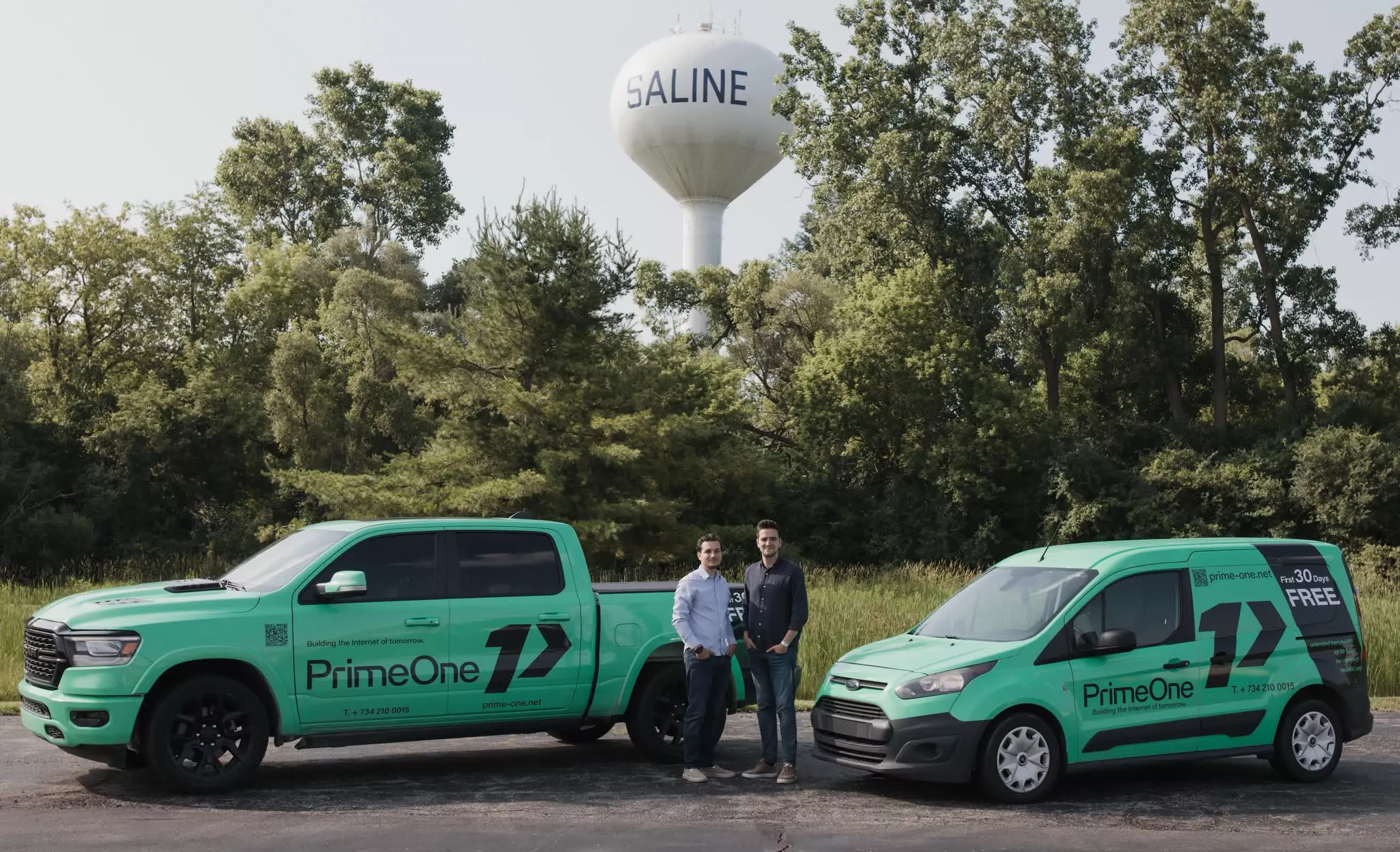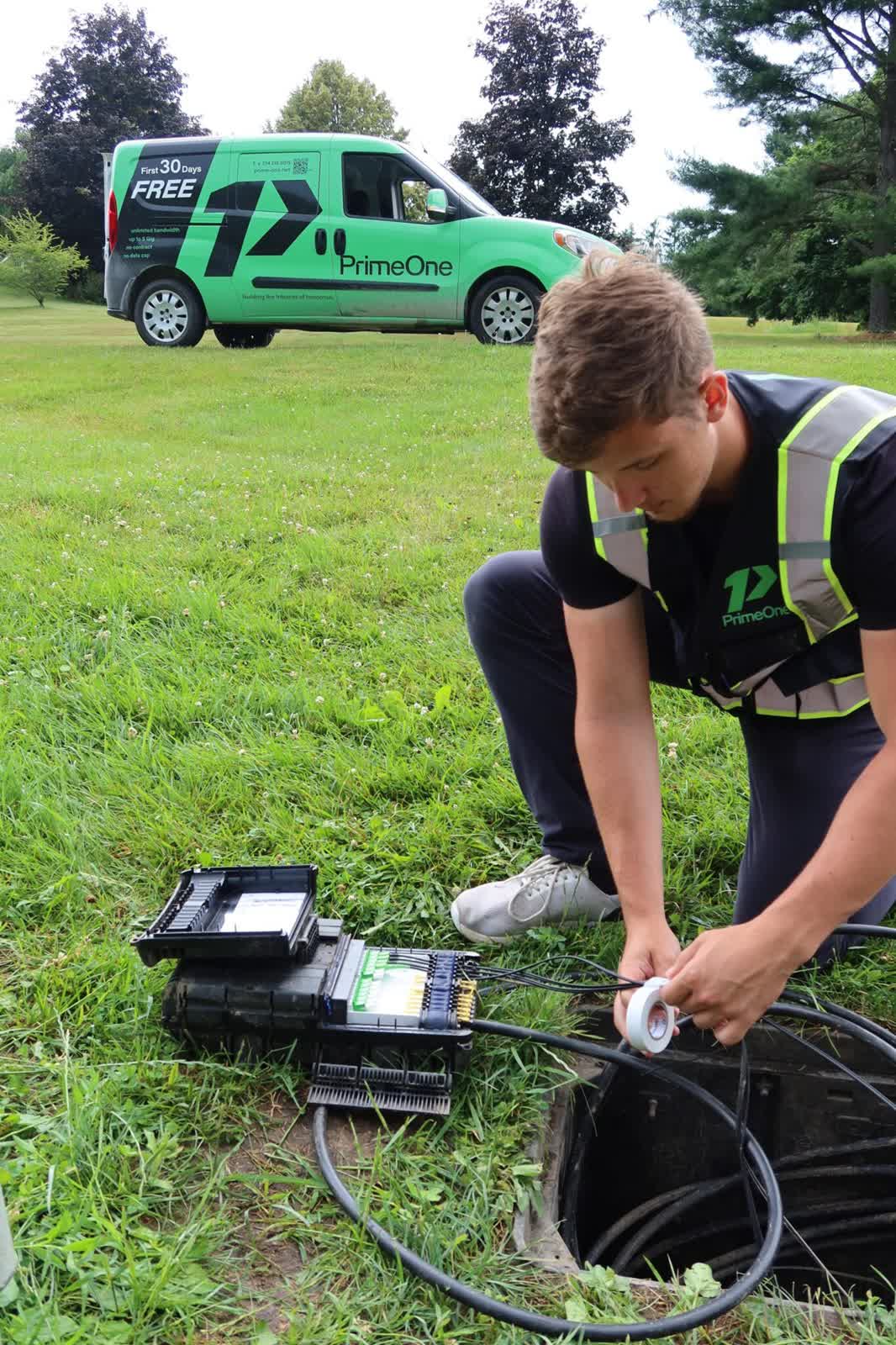TL;DR: In the quiet neighborhoods of Saline, Michigan, a new kind of Internet service provider is taking root – one born not from a tech giant, but from the frustrations and ambitions of two residents, Samuel Herman and Alexander Baciu. Dissatisfied with the limitations of cable broadband, the pair have launched Prime-One, a fiber optic ISP that is now competing head-to-head with industry heavyweight Comcast in their community.
Herman recalls growing up in a household of ten, where slow upload speeds and frequent service interruptions from Comcast's Xfinity service were a constant source of stress. "All throughout my life pretty much, I've had to deal with Xfinity's bullcrap, them not being able to handle the speeds that we need," Herman told Ars Technica. The family's needs, driven by schoolwork and daily life, often outstripped what their cable connection could reliably provide. "Many times we would have to call Comcast and let them know our bandwidth was slowing down... then they would say, 'OK, we'll refresh the system.' So then it would work again for a week to two weeks, and then again we'd have the same issues," he said.
After marrying in 2021 and building his own home, Herman sought alternatives. Despite his experience in construction for ISPs, he found no fiber providers willing to serve his area, even as companies like Metronet and 123NET offered fiber elsewhere in Saline. The only option remained Comcast, at $120 a month for gigabit download speeds – but with much slower uploads. Baciu, living a mile away, faced the same predicament.
Armed with industry know-how – Herman as chief operating officer and Baciu as chief construction officer in the family's contracting business – the brothers-in-law decided to act. They shifted their company's focus to become a turnkey contractor for ISPs and then founded Prime-One, a fully underground, 100 percent fiber optic network. "Everything that we're doing is all underground. We're not doing aerial because we really want to protect the infrastructure and make sure we're having a reliable connection," Baciu told Ars.
Prime-One's offerings are competitive: $80 a month for symmetrical gigabit service, $75 for 500Mbps, $95 for 2Gbps, and $110 for 5Gbps, all with unlimited data, no contracts, and the first 30 days free. Each customer receives an optical network terminal, modem, and, if needed, a Wi-Fi router at no extra cost. There are no equipment or installation fees.
Since launching service in January 2025, Prime-One has built out its network to about 1,500 homes in Saline, laying roughly 75 miles of fiber. The company's initial goal is to reach 4,000 homes and eventually expand further. Their main competition remains Comcast and Frontier's DSL service, but the founders are determined to serve even rural and less densely populated areas that larger ISPs often overlook.
With just over 100 customers so far, the company aims for about 30 percent market penetration in its service area to reach profitability. "I feel fairly confident," Herman said.
Before breaking ground, Herman and Baciu consulted with Jared Mauch, a Michigan resident who built his own rural fiber ISP. Mauch "gave us quite a lot of insight on what to do, how to build, and on the actual ISP side... he showed us the way he did things on the technical side for the ISP, what strategies he used and what products he used," Herman said.
While they opted for different networking products – primarily Nokia equipment – they credit Mauch's guidance for helping them navigate the complex landscape of running an ISP.
Prime-One employs 15 local staff, mostly installers and technicians, with others in customer service and operations. Unlike national providers, Prime-One offers both phone and chat support, and prioritizes face-to-face service. "Many people want to be able to see someone face to face, which is very easy for us to do since we have people here locally," Herman explained.
Reliability has been a key selling point. "The only outage we've had was due to severe weather that caused a massive outage" across multiple networks, Herman said. For individual service disruptions, the company guarantees repairs within two to four hours and offers a $5 credit for every hour of downtime.
The arrival of Prime-One has not gone unnoticed by competitors. Herman reports that Comcast has been contacting former customers with offers of discounted rates and long-term contracts in an effort to win them back. Comcast, for its part, says it has upgraded its network in the area and now offers multi-gig speeds and unlimited data plans as part of a national overhaul. However, customers must switch to new plans to access unlimited data, as legacy data caps are still in place for some.
As fiber construction by other providers like Metronet and Frontier increases in Saline, Prime-One's founders remain focused on serving areas neglected by larger ISPs. "We have plans that we cannot disclose at this moment, but we do have a plan to expand," Herman said.
Image credit: Ars Technica


